The good news is that this strain like all the other coronaviruses is actually easy to kill on surfaces. According to the US Environmental Protection Agency “Coronaviruses are enveloped viruses, meaning they are one of the easiest types of viruses to kill with the appropriate disinfectant product”. Some cleaning products can break that protective envelope surrounding the virus and shut it down, reducing your chances of catching the virus from your environment.

Many of our existing home cleaning products are effective against coronavirus e.g. diluted bleach, or cleaners with at least 70% alcohol and disinfectant. But remember bacteria and viruses are different germs so you need to read the label carefully to ensure the product contains virus killing active ingredients and is not just an antibacterial formulation. For disinfectants to work, they also need to be in contact with the surface for a period of time to kill bacteria and viruses, so make sure this is clear on the label as well.
The rush on home cleaning products means you might be running low so here are some other common household products you can use to disinfect your home.
Soap and Water
Soap, water and friction are very effective at removing the virus from surfaces. Simply use soap and water and scrub to lift the virus from surfaces, then rinse away. According to Richard Sachleben, an organic chemist and a member of the American Chemical Society most soaps are actually detergents so will have the double effect of actually killing the virus but breaking down the protective protein shell.
Alcohol
Not the alcohol you drink, the stuff in your medicine cabinet! Dr. Siouxsie Wiles, associate professor in charge of the Bioluminescent Superbugs Lab at the University of Auckland, said that ethanol and isopropyl alcohol (rubbing alcohol/surgical spirit) are both effective at fighting the coronavirus that causes COVID-19. Research shows Ethanol has been shown to kill coronaviruses in as little as 30 seconds by destroying the protein and RNA of the virus. Simply moisten a cloth with the rubbing alcohol and rub over the surface, no need to wipe it off.
Bleach
The active ingredient in bleach – sodium hypochlorite – can kill coronavirus on surfaces by also destroying the protein and RNA of the virus. The Centers for Disease Control recommends preparing a bleach solution by mixing 5 tablespoons (1/3 cup) bleach per gallon of water or 4 teaspoons bleach per quart of water. Make sure the bleach is not past its expiration date, and that you mix the solution in a well-ventilated area.
Research suggests it can take 10-15 minutes of contact to kill the virus (then give the surface a wipe with a clean cloth) which is not ideal or practical for many households. Nor is Bleach a great option if you are environmentally friendly, or sensitive to the very strong smell. Bleach can also damage some paint and if used repeatedly can corrode metal.
Hydrogen Peroxide
Hydrogen Peroxide is as strong as bleach but breaks down harmlessly, so is not as toxic. You have probably used it many times in your life – it is used in tooth whitening for example and it might even be in your first aid kit to clean out minor cuts and scrapes and can be bought as over-the-counter medication at pharmacies and stores in a 3-6% solution with water.
The US Environmental Protection Agency includes a variety of commercial cleaners containing hydrogen peroxide on its official list of effective chemicals against COVID-19. It works through oxidation – when the reactive oxygen atoms interfere with the electrons of virus and bacteria cells, breaking them down.
Consumer Reports suggested putting undiluted 3% hydrogen peroxide in a spray bottle and then spraying the surfaces you want to clean. Allow the solution to sit on the surface for a few minutes to allow it to fight against the virus’s outer protective layer before wiping it up. Not only is Hydrogen Peroxide a quick and effective virus killer it is a natural and environmentally friendly option.
If you do not have Hydrogen Peroxide in your home you can purchase Viruclear which contains an 8% solution of Hydrogen Peroxide in its formula (along with other ingredients to increase it’s effectiveness) and takes thirty seconds of contact time to be effective.

Viruclear 1&5L
Virulabs ViruClear Concentrate
Select options
Remember to Clean First!
Disinfectants are most effective when used on clean surfaces so use your usual cleaner or hot water and soap to clean surfaces as well as fabrics first. Once this is done you can disinfect to ensure maximum hygiene against harmful bacteria and viruses.
Don’t forget to clean those high-touch areas — tap handles, doorknobs, stair rails, light switches etc.






